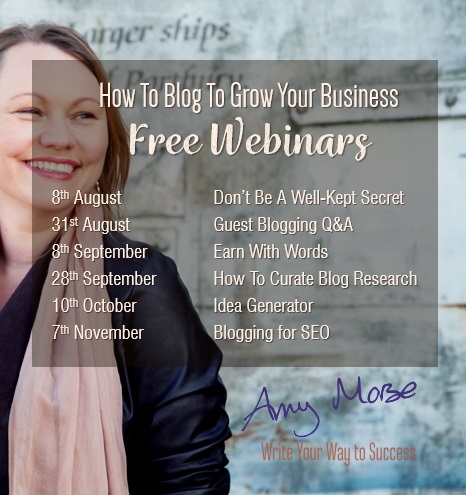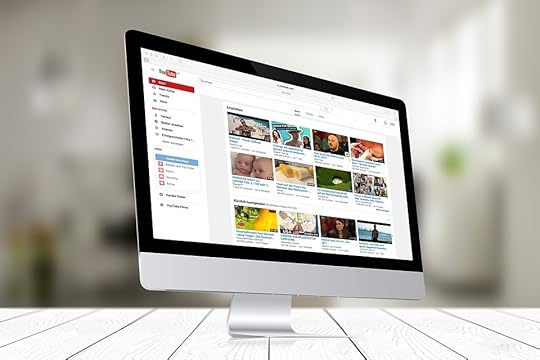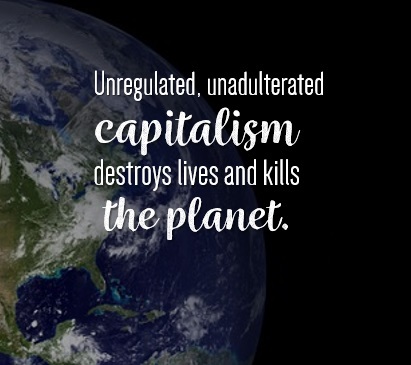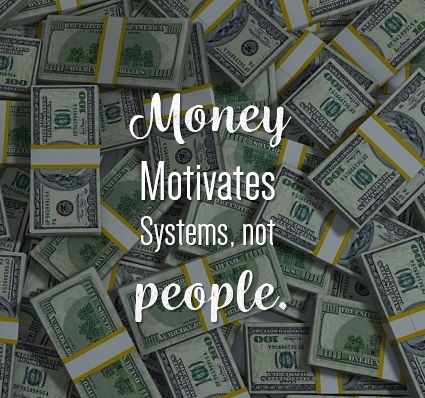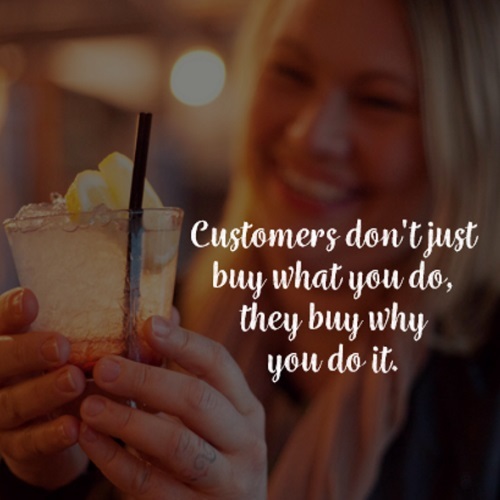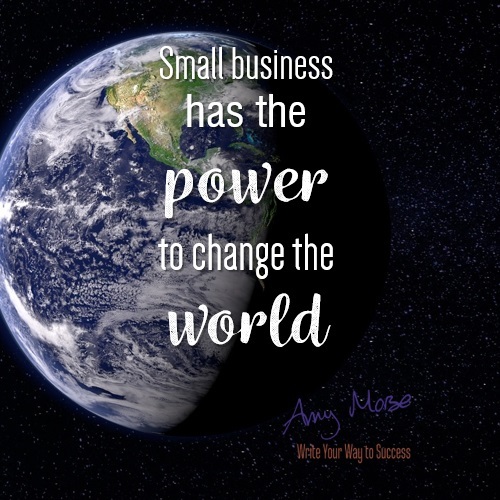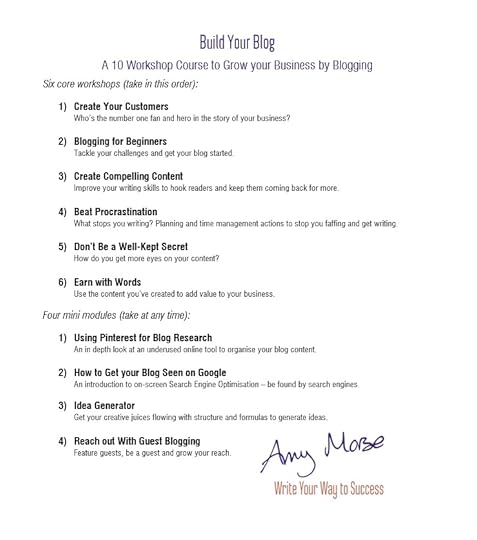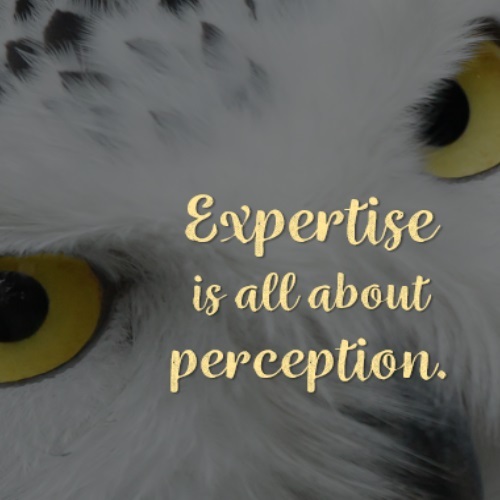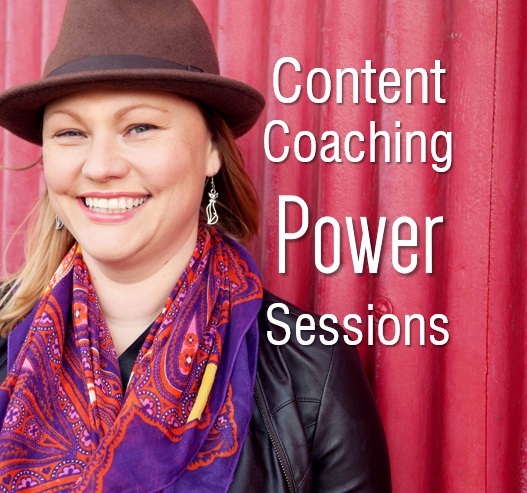Amy C. Fitzjohn's Blog, page 28
August 16, 2017
Marketing Doesn’t Have to be Menacing! Three Techniques to Try
Looking for some marketing ideas?
Here’s a short contributed post to chew over:
Marketing Doesn’t Have to be Menacing! Three Techniques to Try
You could have the best business idea in the world, but without the right marketing and advertising your potential customers are never going to hear about you. The accessibility of the internet means the marketplace is saturated with businesses, so in order to do well and stand out, you absolutely have to focus on your marketing strategy. There are plenty of methods you could use to do this, here are a few to consider.
Social Media Marketing
Social media is possibly the most important marketing method for modern businesses. As well as being able to interact with and understand your customers in a more personal way, you can also share offers and discounts and generally show your face to your audience as an easy and free way to advertise. Having a good social media following also helps to show potential customers that you are trustworthy, and that other people are buying from you. It’s an easy way to get feedback and reviews, and on top of this, it has higher conversion rates than most other kinds of marketing. They cost nothing to set up, although it could be worth paying a social media marketing expert to help you run everything. That way the accounts are handled correctly and the best advertising materials are shown.
Affiliate Marketing
Affiliate marketing is one of the oldest forms of marketing: here businesses place their ads or links on a third party website, and the owner of the website gets commission for every sale made. This benefits both the site and the company, only a small amount is paid out but it’s hassle free for the website owner (usually just adding a small piece of code is all that’s needed), and the money can add up. As a company, you’re only paying out a tiny percentage of every sale made. Google AdWords is a version of affiliate marketing, experts like Paul Granger are able to manage this side of things for you if you’re unsure. That way you can be sure you’re getting the absolute most of the money you invest in this kind of advertising.
Leaflet Distribution
Traditional paper methods aren’t the most effective these days, but it doesn’t mean they’re obsolete. In fact, for some businesses leaflets can be a great way to promote. If for example, you’re a launderette or budget cafe, leaflets in places like student halls will get your name out there to the right audience. If you’re an ironing service, you could ask to leave flyers in places like soft play centres where they’re likely Takeaways, and other establishments do well from posting menu flyers too to local streets. If you’re quite a niche business, it makes no sense sending out thousands of flyers to people who are unlikely to be interested. Have a think and work out if this would be suitable for you.
What marketing techniques do you focus on to promote your business? Which is the most effective for you?
Save
Save
The post Marketing Doesn’t Have to be Menacing! Three Techniques to Try appeared first on Amy Morse - Authorpreneur.
August 15, 2017
The Recipe for Getting New Business – A Guest Post
This week, I’m proud to host another guest on the blog, sharing her successful recipe for attracting new business.
Tara Clist of Tara’s table shares her story and some top tips for hosting an event.
Tara has been a guest for me before on The Power Of Testimonials.
Welcome back, Tara! Over to you…
The Recipe for Getting New Business
I am a chef who, after eight years of slaving over several hot stoves and working my way up from the very bottom to the dizzy heights of Head Chef, decided enough was enough.
Having catered for a few private events on the side over the years, I thought “it couldn’t be that hard, surely?” and so I decided to start my own private chef service and corporate event catering business; hence Tara’s Table was born (that’s enough self-publicity for now, thank you for listening).
If you’re a business owner, you’ll be challenged with constantly thinking of new ways to get more business and keep the money rolling in – anybody who says they’re not either should be, or they’re lying!
Oftentimes, we start a business only to find we are reluctant business owners, not me, I promise. I actually enjoy it, that’s not to say inspiration doesn’t always flow as freely as a good recipe idea.
Quality Ingredients
You can get more business in several ways and like a good recipe, a host of interesting and varied ingredients is always a winner – sending regular(ish) mailouts to your database, networking so that you can meet new potential customers and keep your database current and up to date; being really good at what you do so that word of mouth starts to spread, writing guest blogs – like this one – for other clever business owners are a few ideas.
Tasty Events
But, and I know you should never start a sentence with but: have you thought about putting on events for your potential customers to showcase what you do? For me, it’s easy, I cook. And good food always puts a smile on people’s faces. If you don’t have a shop window, it can be hard to get people’s attention and it’s a very competitive world out there these days. Perhaps you have a service or a product people could try so this is your perfect chance. You will probably give something away for free and time is money, but think of it as an investment, like an advert in a magazine but so much better.
“Good food always puts a smile on people’s faces.”
Inevitably, putting on an event does cost a certain amount of money but you could keep the costs down by finding a venue where the owner may be looking for similar customers and you could come to some arrangement. A two pronged approach often works wonders since you can agree to share the event across both your databases and therefore, will be much more likely to fill it. But events don’t always have to be enormous. For instance, I’m currently planning on targeting a specific business sector and holding a canapé and drinks event of my own in a bijou little place I know, just in time to secure lots of Christmas bookings. Wish me luck!
Tara’s Top Tips:
Any good recipe has a host of interesting and varied ingredients – Newsletters, networking, blogging – blend them together.
Events are always a tasty treat – Join forces for maximum impact on attendees with minimal impact on your bank account.
Give them a little taster to whet their appetites – Everyone loves a freebie, we like to try before we buy
Tara has a Pop-Up Greek Extravanganza in Bristol in September – Hurry, the spaces fill up fast!
Thanks to Tara for some great insights!
Find out more about Tara:
Website: www.tarastable.co.uk
Twitter: @Taras_Table
Facebook: Tara’s Table
Instagram: Tara’s Table
How can guest blogging benefit your business?
Join my Guest Blogging Q&A Free Webinar
I have a whole series of FREE Webinars on How To Blog To Grow Your Business, get your tickets HERE
Ready to take action?
Reach Out With Guest Blogging eWorksop out now!
Save
Save
Save
Save
The post The Recipe for Getting New Business – A Guest Post appeared first on Amy Morse - Authorpreneur.
August 13, 2017
How To Successfully Start Guest Blogging
On an almost daily basis, I receive pitches from people asking to guest blog for me.
I enjoy hosting other people on my blog. I can showcase someone else’s work, help a fellow business out and also have that ‘chapter’ in the story of my business written for me. Win – Win.
However, the quality of pitches ranges from flattery to entitlement and everything in between, but those I do consider have a few things in common:
They are addressed to me, not a generic ‘Dear Webmaster’ or ‘Dear sir/madam’.
Mentioning an article on my blog and relating their own pitch to it.
Flattering me, but in a genuine way, not a generic ‘hey, your content is great’ – they say what they enjoyed and why
Showing they have done some basic research and have an understanding of my audience.
Suggesting a couple of topic ideas and asking my opinion
Following my submission guidelines and sending all the information without having to be reminded or chased.
When I say yes, they respond quickly.
They DON’T bug me every 5 minutes until it’s published (I always indicate when they can expect to see it published).
Thanking me when it’s published.
Actively sharing the content on social media and @mention me when they share it. I do this for them and expect the same in return. The guest blog should benefit both our businesses.
They follow me on social media (even after they’ve blogged for me).
Guest blogging is about forging a relationship and connection with another business and an unspoken will to support each other.
In particular, I love hosting people I already know, businesses in my network – I like to give them a helping hand.
Last week I was proud to host my friend Sarah Clark of Mariposa Coaching who wrote a great piece on Motivational Mindset for me.
And, this is my top tip to get started with Guest Blogging….
The Best Way to Start Guest Blogging – Video
It’s much easier, and often more satisfying, to host people you already know or to guest blog for them.
Watch my quick tips video on The Best Way to Start Guest Blogging:
My top tip:
Pitch to people you know first
Want to guest blog for me? Here’s my Submission Guidelines:
I’m building an online course on how to blog to grow your business.
The ‘Build Your Blog’ course is made up of 10 workshops on different stages of the process, packed with tips, ideas, inspiration and activities to help embed that learning by putting it into practice.
Join a free webinar to find out more:
The first workshop is available now:
Reach Out With Guest Blogging
Save
The post How To Successfully Start Guest Blogging appeared first on Amy Morse - Authorpreneur.
August 5, 2017
Creative Ways to Market Your Business
Looking for some creative ideas to get you business noticed?
Here’s a contributed post with five ideas to try:
Now that the internet is dominating the ways in which we discover new businesses and our spending habits in general, businesses are having to find more and more creative ways of getting their services noticed. But with so many different marketing methods available these days, it can be challenging to know where to channel your budget. Well, here are a few popular and creative ways that you can get your business on the radar of new customers while still keeping your original clients interested as well.
Social Media Campaigns
Social media provides an instant portal of communication to clients that traditional marketing simply cannot match. So, you could try creating different campaigns to see what captures people’s imagination. For example, you could run a big giveaway over the course of a month as long as people like and share your posts. Alternatively, you could have a tip of the week where you give customers useful information relating to your particular sector.
Creative Video Content
Most businesses are heavily involved in content creation these days, but you can stand out from the crowd by creating video content to support your written content. But rather than just making it something that looks homemade and unprofessional, try prioritising slick video production and you immediately grab people’s attention. After all, consumers tend to have shorter attention spans these days so they are more likely to watch a video than read through a long-winded article.
Get Covered in the Media
If you can do something that gets the attention of the media, this is free marketing so it is certainly worth pursuing. So, you could try some sort of publicity stunt at an already promoted event or do something that supports the local community. Another way of generating media coverage is through sponsorship or you could even put yourself up for a business award. Sending out press releases whenever your company does something that is newsworthy should become second nature to you.
Send Out Newsletters
Many businesses make the common mistake of trying to always bring in new customers rather than focusing on the ones they already have. One way that you can remind your existing customers that you are still there is with a newsletter that details your latest developments, offers and anything else you think it is worth mentioning. Of course, email is going to be the most cost-effective way of doing this in the modern world.
Create Eye-Catching Mailouts
If you are going to send out mailouts, you want them to be big and bold so they capture people’s attention. For example, if you run a golfing company, you should shape the mailout like a giant golf ball or a flag. There is no point creating something that is run of the mill or it is much more likely to be thrown away as soon as it is received.
Marketing is a tricky area to get right in business, but you will have a much higher chance of success if you are creative in your approach.
Save
Save
The post Creative Ways to Market Your Business appeared first on Amy Morse - Authorpreneur.
August 2, 2017
The Motivational Mindset – A Guest Post
This week it gives me great pleasure to host the motivational and inspirational Sarah Clark of Mariposa Coaching.
I met Sarah a couple of years back when I first started. I was networking as much as a I could just to get to know people and understand the dynamics of the business community in my home city of Bristol.
One of the unexpected benfits of networking is making new friends. It gets harder to make new friends the older you get, and often your friends become those there out of convenience (i.e. work colleagues); they probably wouldn’t be your friends in any other version of your life! Networking allows you to mix with such a diverse range of people, you can quickly build genuine friendships and I’m proud to count Sarah as a friend, as well as a contact in my business network.
Sarah is currently offering motivational mindset 1:1 and group coaching. If you have an area of your business or for your company you could do with some help with, check out her website for more information: Mariposa Coaching
Over to Sarah…
Steps to Get Motivated – Keep On Keeping On – The Motivational Mindset
So, we start off with a new idea, a goal right? We get really excited about this. It could be joining a new gym, it could be deciding to write a book, start a new class, set up a business… whatever it is, you start to feel good. Change is good, change is moving forward and producing something new. You can feel that you are on the brink of something…!
Contemplation Stage
We call this the ‘contemplation stage’ (as defined by Prochaska and Diclemente stages of change model).
We are contemplating making a change, weighing up the pros and cons about whether we want to move forward with our idea or if you are a Blackadder fan your ‘cunning plan’.
Decision Stage
The ‘preparation’ or ‘decision’ stage is where we decide to take action. This is a really enjoyable stage as we start telling other people about it and then commit to action. However, the favourite stage is when we put it into action. The person who starts going to the gym and notices how they are toning up, the author who starts producing, the entrepreneur who starts getting clients or the student who gains new learning.
Great!
Maintenance Stage
So, what’s the problem? Well it’s sort of tricky to stay motivated and maintain those changes. People, places and things just get in the 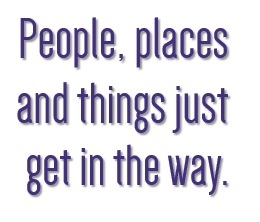 way.
way.
Sound familiar?
Speaking to most people in my time as a coach, this tends to be what I hear…
“How do I ‘keep on keeping on?'”
“How do I make sure the gym is part of my every day schedule, the book keeps getting written or I work on my projects every day?”
“How to keep doing my dance practice?”
“How do I manage doing it all?”
“How to stay motivated for the longer term?”
This is the ‘maintenance stage’.
There is no magic wand (if you are a fairy tale fan) BUT there are things we can do…
Step 1 – Recognise what drives you
Your drivers
Maslow 43 & McClelland 61 give a pretty cool definition of motivation ‘this is what drives people to behave in certain ways, in terms of their needs, aspirations and goals’.
Rollnick & Miller in 1995 (Motivational Interviewing) describe how ‘impetus for change’ comes from your own ‘intrinsic motives and goals’. We are looking at how our needs, aspirations and goals are motivational.
Daniel Goleman in his book ‘Working With Emotional Intelligence‘ has a whole chapter on ‘what moves us’. He looks at motivational competences held by outstanding performers. Let’s have a look at these and see if you can recognise which ones are applicable to you.
Achievement Drive
Those who strive to ‘improve or meet standards of excellence’. People who are really results orientated, like to set challenging goals, work on improvement from feedback and their reward is really what they will achieve. That keeps them going.
Commitment
This tends to link to those of us who really get motivated and stay motivated when linked to having a sense of purpose, when we are with others, or linked to organisational goals. For example, I recognise myself in this one when it is connected to being involved in dance practice with my dance class, working on new group choreographies, practicing as a group with a group vision of a performance in mind.
Initiative/optimism
In his book Goleman outlines how these competencies ‘mobilise people to seize opportunities and allow them to take setbacks and obstacles in their stride’. The main driver here is optimism, of being able to achieve what we set out to do, and the fear of failure is much less. People who are driven by this tend to be able to be able to seek their own goals rather than have external events motivate them. They tend to be proactive and also anticipate what is coming.
When we are looking at maintaining change – keeping motivated – we are looking at sustaining that change. Recognising what drives you can really help.
You can of course have a mixture of all 3 but which one of these drivers helps motivate you?
Which one of these drivers do you find motivational?
Step 2 – Avoid the PIG
No, I don’t mean those squeaky pink creatures; I mean the problem of immediate gratification. The thinking or systems for rewarding yourself that are getting right in the way of the motivational mindset. We all have them! Really!
We are conditioned to want rewards, to want good things… not a problem usually, but the trouble is when we want them and we want them NOW!
The sure way to get off track is to give in to the wants and desires that get in the way of keeping motivated with our goals. It could be the writer who procrastinates, the gym member who goes into the gym cafe for a breakfast but then ‘runs out of time to do a workout’, the person being careful with what they eat who finds it hard to say no to the cake or take the extra glass of wine. The goals can seem really far away when we are in the immediate.
A good question to ask yourself when you become distracted from staying on track with motivation is, “‘who are you fooling?”.
When you give into the immediate gratification – short term gain that leads to long term pain. Give yourself a reward yes, that’s good, but just watch it doesn’t lead to a slip back to where you started.
However, if you can recognise these you can squash that PIG… oink!
Step 3 – Work out what works
There will be situations where motivation is working for you, it is simple to get motivated and stay motivated and it’s worth noting what those are and when this is.
I know a writer who would write at 5am in the morning as that was when she was at her most productive and the house was quiet.
I work best about 8am, 4pm and 9pm… no rhyme, no reason, it just is – and can write a workshop or dance choreography when the house is quiet so no distractions.
What are yours? Think back to a time when you made a change and sustained.
Think back to a time when you made a change and sustained it, you were totally motivated to keep on keeping on and were in that motivational mindset.
It could be a mantra you have – a change statement. An image. The positive visualisation of the goal. A new tattoo or a holiday when you have achieved set targets (long term gain).
Think back to times you stayed motivated because you kept is simple, regular and achievable – it worked because you did not overwhelm yourself with too much so you gave up before you started. If I talk to professional dancers for example they will tell me they have a routine every day that makes it a habit and don’t overcomplicate it.
Final step – Happiness
Link it to your happiness.
We only have one life so let’s use it wisely and get motivated to do things and make changes because it gives us joy. See step 1 what drives us!
Since 2000 I’ve been coaching and training clients facing some of the most complicated challenges imaginable in life. I progressed into training staff in their workplaces to communicate successfully with others, empowering people with the tools to change their behaviour patterns.
I provide a toolkit of skills to enhance your business and personal life. I help you to self manage, make behavioural changes for a healthy, positive mindset. I work on self acceptance, self motivation, and focus to achieve your goals, by being an effective communicator, to enhance your performance and be more productive.
As a coach, I know my trade and I’m passionate about applying coaching psychology approaches to my practice. Over the years I’ve immersed myself in cognitive behavioural approaches, problem solving, solution focused and rational emotive behavioural coaching.
You can find more information on my background as an insured coach with certification including my membership associations on my Linked in Profile:
Linked In: https://uk.linkedin.com/in/sarahmariposacoaching
Twitter: @MariposaSarah8
Website: https://www.mariposacoaching.co.uk/
Save
For instant updates when I publish a new blog post, Follow me on Bloglovin’
For extra goodies and exclusive new information, join my mailing list HERE.
I only send a newsletter monthly so I won’t spam you, I promise!
Save
Save
Save
Save
The post The Motivational Mindset – A Guest Post appeared first on Amy Morse - Authorpreneur.
July 28, 2017
Does Anyone Pay For Information These Days?
My husband Graham and I were sat in a bar during Bristol Harbourfest (dodging the rain) last weekend, and ‘Stealers Wheel, Stuck In The Middle With You’ came on…
(I recommend listening as you read – it’s a great tune…)

Image Credit: IMDB.com
It spurred on a conversation between us about ‘that scene’ in Reservoir Dogs… for the life of us, neither of us could remember the name of the actor playing ‘Mr Blond – Vic Vega’…
Now, if you have a question about something, anything, what’s the first thing you do?
…Google it!
You can find out pretty much anything on the internet these days. You don’t even have to wait until you get home – boot up your PC and hang around for 10 minutes while it whirrs into life – you have everything you need, right there, at your fingertips on your phone…
For Graham and me, it was a point of pride, NOT to look up the information! In fact, the first one to get their phone out would be considered the loser and would have to get the next round in!
It begs the question (and one I am frequently asked by my clients) – “Why would anyone pay for information these days when you can look it up for free online?”
Well, here’s the answer… (finish enjoying Stealers Wheel and watch this):
We often underestimate the value of the knowledege and expertise in our businesses.
Who Owns Our Content?
When we think about the ‘value’ of our business, in financial terms, we think about the actual physical assets: the furniture, the hardware, the buildings etc. and the value of our ‘Order Book’. But there is huge value in the Intellectual Property in our businesses.
If you pay a copywriter to write your blogs for you, yes, you will fulfil the immediate marketing need of having live content on your website (and a good writer will use the keywords needed to get that content noticed) – however, who ‘owns’ the intellectual property of that content?
Do you, or your writer?
And how would you feel about ‘passing off’ that content as your own and repurposing it – even if your copywriter was happy for that to happen?
If you create your own content, you are creating an untapped seam of potential value in your business. You have created an information resource you can repurpose, package and sell.
Two Reasons To Pay
In summary, from the video, there are two reasons people will pay for information:
To save themselves time (which will save them money)
To get that information from a trusted source and have the attention of that expert so they can act on it
Yes, you can find a lot of information on the internet for free. And yes, you should continue to create free content; because you’re giving your prospective customers a sample of what you know, building up your profile as an expert in that topic and making you a trusted source of information.
But remember, even information you give away for free can then be repurposed into information products such as books, talks, workshops and online courses.
In short – people DO pay for information… if it’s worth their while!
Ps: The actor who played Mr Blonde was … (we both guessed it at the same time!)
Speaking of FREE INFORMATION…
Get yourself a ticket for my FREE Webinars on ‘How To Blog To Grow Your Business’
Save
Save
Save
Save
The post Does Anyone Pay For Information These Days? appeared first on Amy Morse - Authorpreneur.
July 27, 2017
6 Ways to vlog for Your Business – A Guest Blog
I’m pleased to host another guest on the blog this week on how to vlog.
I’ve seen a lot of great guest pitches pop up in my in box recently, so look out for a few more in the coming weeks.
This one, in particular, is very timely for me as I now have a decent phone that takes good videos and I’ve been adding regular short Blogging Tips videos to my You Tube channel – give it a follow:
Amy’s How To Blog Tips Videos on You Tube
George Minton, contacted me after reading my 5 Essential Tips To Become a Professional Vlogger guest feature in April.
I have a few things from my own perspective to add to George’s article:
Vlogging is another way to share information, but ultimately, any content you create should be bringing people back to your website, or at the very least have a ‘call to action‘, so if you do create a Vlog, embed it into a longer blog post on your website.
George is right to point out that ‘people would prefer watching an informative video to reading a lengthy article about your company’s products and services.’ But if that’s what your blogs are about, you’re doing it wrong! Talk to me if you’re finding creating compelling content for your blog a challenge and I can coach you through it.
Planning your vlog: I found it easier to draft a rough ‘script’ before recording.
Enjoy George’s take on vlogging…
6 Ways To Use YouTube Vlogs For Your Business

With more than one billion individuals visiting YouTube in a month, it has become one of the platforms that every business should consider when developing their marketing strategy. YouTube vlogs provide you an opportunity to expand your business’s online authority more creatively. The primary benefit of establishing a YouTube vlogging video is that it brings a human face to your business, giving the audience a more personable experience.
Video blogging can make customers feel like they are buying from you, not just from a website. It can also reach more potential customers than the blogs.
This is because most people would prefer watching an informative video to reading a lengthy article about your company’s products and services.
However, it is only an effective vlogging that can increase your target audience and boost your sales. Here are the 6 ways to use YouTube vlogs for your business and capture more leads.
6 Ways To Use YouTube Vlogs For Your Business
1. Plan on what type of vlog you want to create
Planning and preparing for the type of vlog you want to create is the first step and a critical one because it will affect the overall quality of the video you will create for your vlog. To accomplish this, you need to identify your topic, define your goal and know your audience. It is paramount to choose a niche that knows much about. You should also take the time to reach the topic and take note of the content, posting schedules, vlog format, and type of cameras and editing software used by other vloggers in a similar niche. You should not forget to research your target audience and determine the type of content that may interest them and their potential response to it.
2. Create the raw and unedited version of interviews
When introducing your company, it is a good idea to vlog raw and unedited interviews with industry managers, experts, and CEOs. These leaders can say very interesting things concerning the company as well as the industry in general. Besides, the interviews will further add a personal touch in your brand and express the expertise the employees possess in the particular industry.
3. Keep your video posts short
The length of your vlog should be approximately 3 minutes, but you should be sure that it contains all necessary information. Shorter videos are more likely to attract many web visitors. In case you want to cover a complicated topic that cannot be communicated effectively in a three-minute video, you can consider releasing a video series to address it.
4. Create video to explain important topic on your industry
By establishing an ongoing vlog, you can offer information or education content addressing certain important topics in your industry. In this way, you can increase your brand awareness, besides helping you connect and relate to potentially growing customers. For instance, you can create a video tutorial explaining how customers can use or set up a product offered by your company.
5. Feature customer testimonial vlogs
Including customer testimonials in your YouTube vlogging strategy is another effective way of building trust for your business. Unlike physical customers, those shopping online cannot assess all features of a product before they make a purchase. As a result, you need to give them some kind of assurance that they are investing in the best brand. When new clients show positive reviews and recommendations from real, genuine people who have interacted with your product in the past, it is easier for them to trust it. Therefore, testimonial videos offer an effective way to help web visitors make purchase decision easily and assure them that your company has a positive track record.
6. View your business by filming a “Day in the Life” vlog
Other than using YouTube vlogs as a powerful promotional tool, the video host can also help you create authority, recognition, and trust to your existing and potential customer. One way of doing this is by giving a behind-the-scenes look at your audience, showing how your company runs its operations. By knowing how you create your products and the activities happening in your company, customers may think of you as a transparent business. This approach can effectively build trust with individuals interested in your business as well as show the hard work done by your company, which ultimately boost your brand loyalty and sales.
A big thank you to George for contributing
Website: cameraseals.com.
Twitter: @CamerAseals96
You Tube: Camera Seals
The post 6 Ways to vlog for Your Business – A Guest Blog appeared first on Amy Morse - Authorpreneur.
July 24, 2017
Why Cheapest is Worrying: 3 Questions at the Core of Your Business
I saw a Tweet the other day; a business (who shall remain nameless) declared they were ‘the cheapest provider of their service in the market.’
It always bothers me when a business advertises they are the cheapest at X Y or Z.
Questioning the Cheapest
In most cases, this declaration of ‘the cheapest’ always sets alarm bells ringing for me. It raises all kinds of questions about how that is possible:
Are you exploiting your staff?
Are you cutting corners on quality?
Are you paying tax?
Are you using slave labour in another country?
Are you bullying your suppliers?
Are you using cheap raw materials sourced from countries that don’t uphold the same rigorous safety and consumer standards we’d expect?
Are you using outdated technology?
Have you invested in training your staff?
Have you tried to do it all yourself without paying for professional support?
Are you qualified?
Are you insured?
There must be something unethical and rotten at the core of your business if you’re that much cheaper than everyone else.
Why should I commit to working with you long term – surely, you’re making a loss at those prices and will disappear from the market any day now?
I wrote previously on the myth of cheapness.
The Example Set
I can understand why small businesses would employ these tactics to save money and get some cash coming in quick. Especially when you start out, you just want to break into the market and you’ll say yes to everything – until you settle in and mature as a business (which usually takes a couple of years!).
Small businesses also see these tactics being employed successfully by big retailers, and we’re lulled into this false sense that it’s how business is done. For example, we know they often have ‘loss leaders’; products that will make a loss but will entice you inside where you’ll fill a basket.
Exploitation, poor working conditions and lack of training for staff is well known, as is the use of cheap labour overseas (especially in the fashion industry). However, ‘out of sight out of mind’ is a powerful motivator when you can save a few quid on your weekly shop!
Set a new example
My first question is this:
1) What example will you set with your business?
I’m going to get all worthy and vaguely political here for a moment, but bear with me, I won’t go all woo-woo on you, I promise – it’ll be worth it…
Unregulated, unadulterated capitalism destroys lives and kills the planet.
On the face of it, the concept of capitalism in itself makes sense; if we can measure value we can systemise it and increase it, we can grow continually. And the logical measure of value is money. If everything can be given a monetary value, everything can therefore be measured and optimised.
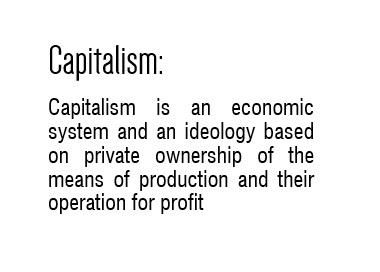
Definition source: Wikipedia
Makes sense, if your only measure of value is a financial one; if ‘profit’ is merely the acquisition of money.
So, here’s my next question:
2) Did you go into business simply to make money, or was there more to it?
I’m NOT saying, ‘money is bad’ or ‘capitalism is bad’ – I’m saying there are many more values than simply financial ones. The difference is, they’re harder to measure, therefore harder to systemise and therefore often ignored by ‘the business itself’ which is just there to make money. But it’s fair to say, that for the majority of people, our main motivator is not simply money.
Money motivates systems, not people.
Even top bosses in multi-million-dollar companies are not just there for the money. They will have their own personal motivators – usually associated with the things they can do with the money rather than the money itself – or the sense of achievement they derive from being in a position of power and influence.
The problem with capitalism as an ‘ideology’ is that anything that doesn’t have a measurable financial value is dismissed as unimportant, inconvenient or a net ‘cost’ for the business.
It removes the human from the equation; because human behaviour doesn’t fit the financial template the system relies on.
That’s why I say, ‘unregulated and unadulterated capitalism destroys lives and kills the planet’, because without checks and balances in place, money becomes the only thing of importance – which is inherently destructive, because it mercilessly consumes people and resources and converts them into cash.
But here’s the thing…
Business, systems, they are all started and run by humans. Capitalism reduces the role of the human to that of a ‘cost’ which is therefore recorded as a negative on its balance sheet.
But what if you measured and considered the human? What’s the social capital in the system? What if the value wasn’t simply a measurable financial one, but an emotional, ethical or social one?
Curious then, that when we talk about our ‘values’ we’re not talking about how much money we have in the bank!
3) What are your ‘values’ as a business?
When customers pay for value – they don’t just pay for the financial value that the business system measures, they pay for the ‘values’ (it’s plural) they associate with your business.
We don’t just buy what you do, we buy why you do it.
By actively seeking to be ‘the cheapest’ the signal we send out is that our only values are financial ones. That the business values little else. The business does not value the humans that run it.
As a consumer, do you want to buy into that? I certainly don’t!
In short, small business truly does have the power to change the world; because today’s small businesses are tomorrow’s big employers.
Today’s small businesses are the foundation of our future, and our future depends on more than just money. It depends on the values we create today.
We can have a form of ‘social capitalism’ (not socialism!).
‘Social Capitalism‘ finds profit in the small, everyday things businesses do to create a better future.
It starts with you, in your business, valuing more than just financial gain.
Ask yourself these 3 questions:
1) What example will you set with your business?
2) Did you go into business simply to make money, or was there more to it?
3) What are your ‘values’ as a business?
This is why people buy from you. Trust in the ‘values’ of your business and the financial value will follow.
If we all did that, we really can change the world!
What are your values?
(Tell us in the comments)
They are at the heart of your business, they are integral to the story of your business.
Talk to me about telling your story in your own words. Set up a free call HERE.
For instant updates when I publish a new blog post, Follow me on Bloglovin’
For extra goodies and exclusive new information, join my mailing list HERE.
I only send a newsletter monthly so I won’t spam you, I promise!
Save
Save
Save
Save
Save
Save
Save
Save
Save
Save
Save
The post Why Cheapest is Worrying: 3 Questions at the Core of Your Business appeared first on Amy Morse - Authorpreneur.
July 17, 2017
How I Became Amy Queen of Blogs – Build A Blog
I first started blogging in 2013. Since then, it has been the foundation on which to build my business.
Build A Blog, Build a Business
I still keep that blog, it became my Amy C Fitzjohn author blog.
But blogging quickly became much more than a writing exercise for me back in 2013.
Blogging became a way to hold myself accountable. It became a way to accelerate my progress to get my first book, The Bronze Box, published in 2013.
My blog quickly became the foundation of my business, both as an author – writing as Amy C Fitzjohn– but also as a Content Coach, when I started my business in 2015. That was when a flippant remark to a business colleague coined the nickname ‘Amy Queen of Blogs’!
For me, blogging is so much more than just a form of marketing.
More Than Marketing
While blogging undoubtedly contributed to the initial success of The Bronze Box and has helped build my profile as an Author, Content Coach and Blogger – I started making money from my blogs when I repurposed my content into high-ticket items.
I blogged previously on 16 Ways to Re-Purpose Content, the most successful being:
Workshops
Blogging for Business Book
Here’s a short video about my story – Why I started blogging and how I turned it into a business.
The next big project is to take those years of experience, building my business around blogging and share them.
I’m developing an online programme to help other businesses discover the power of their own words and grow their business by blogging.
The full ‘Build Your Blog’ e-course will be available at the end of the year – with some pre-release modules coming up in the next few months.
Here’s what it will cover:
Be the first to find out more about the forthcoming e-course (and get introductory offers!) – sign up to my monthly newsletter HERE
Save
Save
Save
Save
Save
Save
The post How I Became Amy Queen of Blogs – Build A Blog appeared first on Amy Morse - Authorpreneur.
July 11, 2017
But I’m not an expert…
“But, I’m not an expert!” Have you ever caught yourself saying this? Even in your head?
It’s one of the common reasons I hear for NOT Blogging.
“Who am I to talk, what do I know? I’m no expert, why would people want to read my blogs? There are plenty of other people who know more about ‘whatever-it-is’ than I do.”
Let’s get to grips with this word ‘Expert’ we find so difficult applying to ourselves.
As a wordsmith, I like exploring the meaning behind words, I find language and our perceptions around words fascinating.
What we’re told about ‘experts’
‘Expert’ is a loaded word. There are plenty of negative associations with it.
‘Experts’ have been much derided by our biased British press; especially given the huge political and constitutional upheaval we’re experiencing right now.
But, it’s not an exclusively British phenomenon. Things seem to be amplified in the States where phrases like ‘post-truth’ and ‘alternative facts’ are being bandied around to defend ourselves against these charlatans that claim to be ‘experts’.
The implication being that ‘so-called-experts’ are self-styled gurus. Fakers. Liars with a hidden agenda. They’re somehow there to hoodwink people, by baffling them with science and big words.
Who wants to be one of those? Certainly not you or me! We’re real businesses, doing actually useful things. Things that contribute, and slowly but surely change the world (because small businesses have the power to change the world!).
The fear of being ‘found out’
The moment we plant a flag in the sand and say, “Hey, I’m an expert” we fear ridicule.
Being challenged.
Taken out of context.
Disbelieved.
Treated with derision and mistrust.
And part of us believes we deserve it because we’re not the all-seeing, all-knowing font of all knowledge about ‘whatever-it-is’.
We can look at others in our industry and immediately identify those who do it better than we do or have been doing it for longer or make more money than we do doing it.
Surely, they’re more of an expert than me? Sooner or later I’ll get found out if I start saying stuff about ‘whatever-it-is’!
“…and besides, there’s loads of stuff already out there on the internet. What can little old me possibly add to that?”
Who is really an expert?
Here’s what the Oxford English Dictionary defines as an ‘expert’:
A person who is very knowledgeable about or skillful in a particular area.
Nowhere does it say you must have all the answers.
Nowhere does it say you must have every qualification in that subject.
So next time you’re tempted to tell yourself you’re ‘not an expert’ – ask yourself;
Am I knowledgeable about it?
Am I skillful in it?
You’re running a business in that thing, so I suspect your answer to both questions is ‘yes’.
So, what does that make you?…
An expert, that’s what!
If you read the first part of this post and felt a fist of irritation balling in your gut that ‘experts are liars. or fakers. or charlatans’ – Good for you!
The truth is, when people come to you as ‘the expert’ in your thing, it’s because they perceive you as the expert. The thing is, if we have any degree of knowledge or skill in something, we are perceived as the expert in it by people who don’t have that knowledge or skill.
– They make pies and you can’t make pies for toffee – that makes them the pie expert.
– He’s a jewellery maker and you have no idea how that’s possible – that makes them the expert in jewellery making.
– She writes books and you’ve always wanted to do that but have no idea how to get started or how to get published – that makes them the expert in book writing.
You get the picture.
Expertise is all about perception.
It doesn’t matter that you don’t have all the answers about your thing, you have more answers than the person you serve and that’s all that counts. That’s all they want from you.
In fact, very often we don’t want to speak to the all-knowing guru of that thing because…
A – they’re intimidating and you’ll feel like a fool, and…
B – you probably couldn’t afford them anyway!
And as for the notion that you have nothing to add on a subject, that’s nonsense!
We’ve all been on different journeys. Your journey – the story of how you acquired your knowledge and skill in that thing – is unique. No one esle did it your way, therefore, you will have a different perspecive on it.
Maybe there really is no such thing as a new idea? But the combination of ways of implementing that idea or how you happened upon that idea, is as infinite as the continuity of the human species!
Struggling to find your writing mojo?
Talk to me for FREE about your challenges.
Book a call HERE.
The post But I’m not an expert… appeared first on Amy Morse - Authorpreneur.

 Linked from Pexels website
Linked from Pexels website

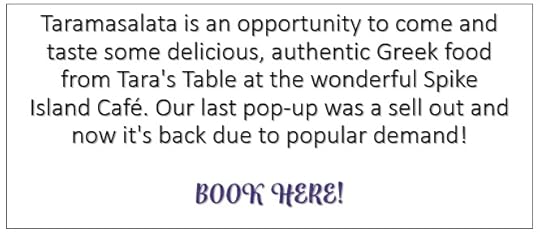

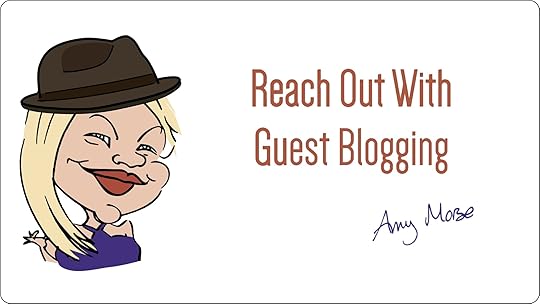
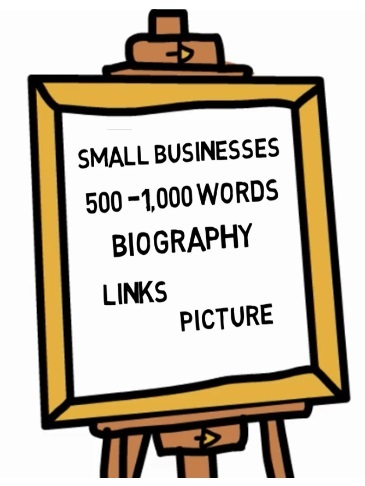
 Photo Credit
Photo Credit


